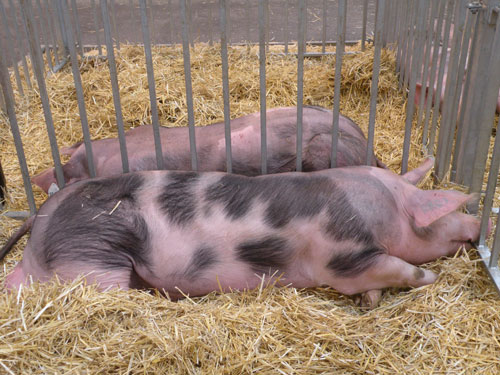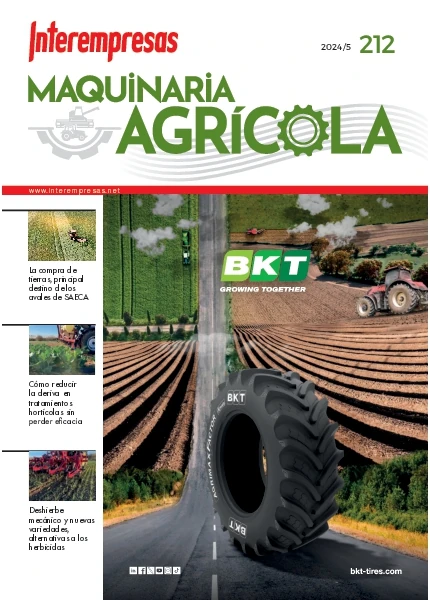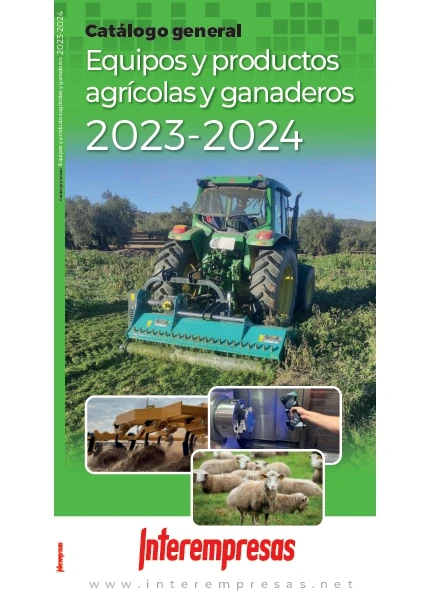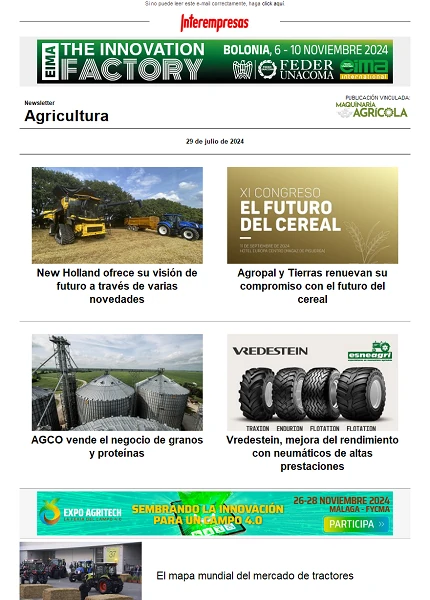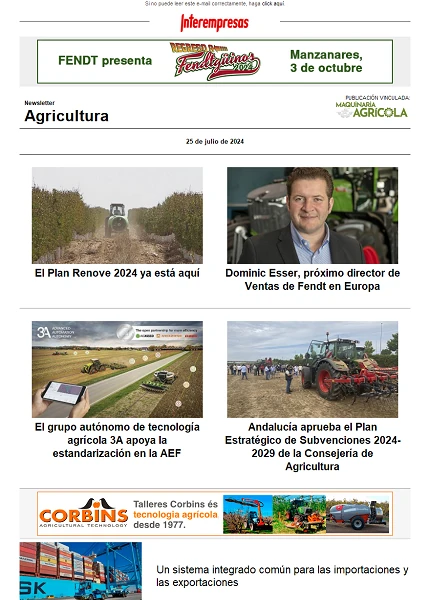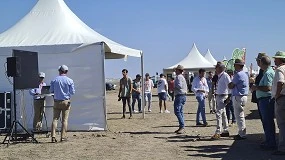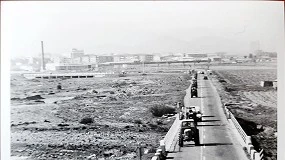The long and arduous road towards a European Animal health law
September 8, 2011
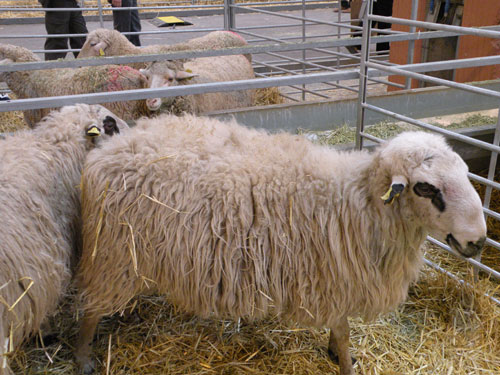
“Go to comment which is the situation of the Law of Animal Health that carries out in the European Union. In his starts, a very ambitious process but that in the actuality is complicating ”. Of this form, Lucio Carbajo Goni, general deputy director of Health of the Primary Production of the MARM, initiated the report ‘Law of European Animal Health', that gave the past 16 March, coinciding with FIMA Grazier. The starting point of this European rule initiated in December of the year 2004, when the European Commission set up an external evaluation to study the results of the action of the EU on the animal health. With the results in the hand and after the query to the parts interested, the Commission presented, four years ago, the new Strategy of Animal Health for the EU (2007-2013). “In principle it pretended do a general reflection to level of the European Union with the end to develop a strategy for the animal health that covered the period 2007-2013. A strategy with a plan of action in which reflexionó on what wanted to do as well as the vision of future that would offer according to the new technical informations and existent methods”. Like novelty, entered the principle of prevention, through a series of incentives. “It treated to avoid that the illnesses went in, in place to centre in the eradication”, puntualizaba the spokesman of the MARM. The aim was to do upsetting in the measures of prevention, in the surveillance of illnesses, in the controls and in the investigation, to reduce the incidence of the illnesses of the animals and minimise the impact of the shoots of the same in the moment of his apparition. Likewise, the new strategy did echo of those questions tied to the animal health like the public health, the alimentary hygiene, the animal welfare, the sustainable development and the investigation.
Basically, the strategy settled on four pillars. The first prioritised the intervention of the EU in his politics of animal health. The second established a frame modernizado for the community animal health, after reviewing the current rule. The third, key in this sense, proposed to improve the prevention regarding the manufacturing in front of the emergencies. And finally, the chamber pleaded for the development of the science, the interpolation and the technology. In this field, the general deputy director of Health of the Primary Production of the MARM did reference to the valid technological platforms, in the community and non-EU field. “In our country –matizaba– have the Spanish Technological Platform where take part all the sectors involved in the animal health (producing, industrial, scientists, laboratories, Administration) to treat the sanitary ware problems that can give and focus the corresponding performances, in the field of the investigation”. Likewise, the speaker resaltó another important “question”, in his opinion: the greater cooperation and communication with other countries, especially as a result of the set up of the European Alimentary Agency.
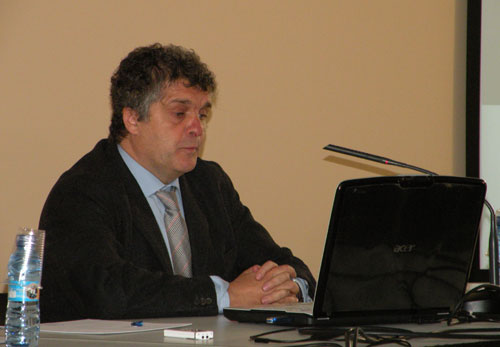
Dispersion legislative and lack of involvement, obstacles in the development of an EU animal health law
The fundamental aim of the Strategy of Animal Health is the development of a legislative frame in matter of animal health for the EU. For the manufacturing of the legislation on animal health, the European Commission –through the General Steering of Health and Protection of the Consumer (DG Sanco)– will examine the recommendations of the European Parliament, of the Council and of the Economic and Social Committee European. With the new Law of Animal Health, would establish a legal frame that would collect and would modify all the sanitary ware rule, in function of the marked aims in said strategy. “The process of creation is extremely complex, as all what does in the EU, with an important number of groups of work but what poses is to do an evolution of the impact of this law, what would originate with hindsight a legislative proposal. The perspectives were good, since it went him to give the word so much to veterinary services and public servicys as to the sectors involved”. During the evaluation of this impact, detected and identified problems in two areas. The first did reference to the difficulties to attain the implication and definition of the functions of all the actors. The second, attain a legislative simplification, since the normative dispersion was the greater obstacle. “Until it does some years, the Administration was the one who posed the diverse programs to the sector, many times against of this last. This politics began to change with the crisis of the crazy cows. In sum, what pretends with this law is to define the obligations and responsibilities of all the actors, no only of the Administration. Also of the carers, producers, owners, operators and mediate you”, explained Lucio Carbajo.And it is that, in words of the general deputy director of Health of the Primary Production of the MARM, in numerous occasions the subjects of animal health have understood like an aggression and the investments in bioseguridad to avoid the contagion of the illnesses have not included in the process of production, but like “an extra game that does not understand very well reason has to set up”.
To continuation, the speaker criticised the presumptive disconnection between the veterinary private, the authorised and the official. “It is true that produces one some distrust between all they that redunda in the fact that the illnesses and the big epizodias control a lot worse, since it takes a month and half and two in taking measures”, complained. This procedure has to to the fear that a suspicion of a shoot epidémico can do that it paralyse an exploitation or a zone that devote to the livestock. In fact the veterinary private has a lot of care to the hour to do these statements by the repercussions that can have, with hindsight. In this sense, the spokesman of the MARM suggested the following: “It Is necessary to surpass these fears through the connection between all the veterinary services, to know the responsibilities of each one. And avoid the sobreactuaciones to which are so interested in the European Union”.
With regard to simplification, the purpose was to all the rules to be grouped in a single legislative body, which would also facilitate its review. It would then arrive at a convergence of European legislation with regard to international standards. "In fact, much of the problems of competitiveness that we have, which includes other issues such as genetically modified organisms, well-being and animal health regulations, are due to the fact that we generate a series of internal problems that we are then unable to move to international agencies", recognized Lucio Carbajo.
In the course of the presentation, the Assistant Director-general of health in the primary production of the MARM insisted on the need to "design performances in farms, producers and technical services, under criteria of bio-security". A vital area before the entry of diseases, not only of the large epizodias but all those of a chronic nature, more difficult to eradicate. As tuberculosis or brucellosis in cattle farms or Salmonella., these are issues to be taken into account and that generally, again, they have been above. "This draft Animal Health Bill seeks to establish what is biosecurity and as encouraging her", added.
Another issue that were assessed was how to improve epidemiological surveillance. Rather than use many resources and means, and take samples in excess, was intended to determine an ordered surveillance, under new criteria such as the determination of the time. How to streamline and adjust the control measures of diseases to international standards of the world Organization for Animal Health (OIE) also arose. "Our problem is that we are incapable of moving these standards to international trade".
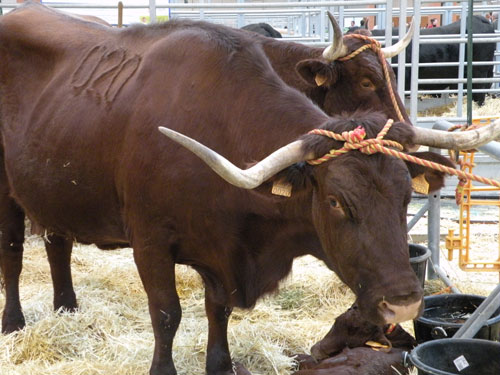
A regulatory framework which would not enter into force four years
After define and analyse the different problems found in current legislation, prior to the development of the new Animal health law initiated an assessment of impacts. This phase of the consultative process, to all groups related in some way with the health or animal welfare, implied the dissemination of two questionnaires which sought to gather input on the main problems identified in relation to current EU animal health policy. In this way, the European Commission, through the Directorate General SANCO, developed and issued two questionnaires: one addressed to the competent authorities (central, regional and local) States member in charge of the implementation of the standards of animal health and the other destined to operators engaged in the production or trade in animals.
In short, organized public consultations that quantifying administrative and cost of application, by means of the two above-mentioned questionnaires. In this sense, the response by the officers involved was "a disaster" in our country, according to Lucius Carbajo. "Then we complain that the rules impose us her European countries and the extra-comunitarios, but when they send them a questionnaire of this kind worldwide responds and gives his opinion." "In Spain do not". The lack of interest would be one of the reasons that ideas and complaints from the agents linked to the livestock sector Spanish not be traspusieran with the rules and the acquis communautaire, currently consisting of more than 400 pieces of legislation.
The first draft of the legislative proposal was presented in December of the year 2010. A draft that, from the Ministry, regarded as "very preliminary", although that Yes is to clarify the rules in the field of animal health. Is committed to a standard "umbrella" that comes close to international standards of the OIE, which valued form positive since the MARM. In addition, is intended to replace the current regulation by a coherent legislative framework, which is adapted to future conditions, and as the spokesman for the Ministry. Similarly, the draft emphasizes in the field of biosafety and clarify the role and responsibility of farmers and other persons who are in charge of the animals.
The new structure of the animal health legislation, since the MARM announced that we want to separate land and aquatic animals by integrating to the latter in all that related to animal health. Discussed on the scope of application of the law, i.e. on what animals and productions must act with regard to the ongoing discussions. "Our view is that the scope of the Act should be any live animal capable of spreading a disease or capable." "We must be ambitious in this respect", they qualifying from the MARM.
Although we want to have a legislative proposal for the current year, the Assistant Director-general of health in the primary production of the MARM also announced that probably all the regulatory framework, scheduled for the next year in the beginning, delay until 2015. This should be the intention of SANCO give green light, at the same time, to the general law of food and hygiene, reform of Regulation (EC) 882/2004 currently under discussion, the law on Animal Health and plant health Act, of which only a first study has been made.
